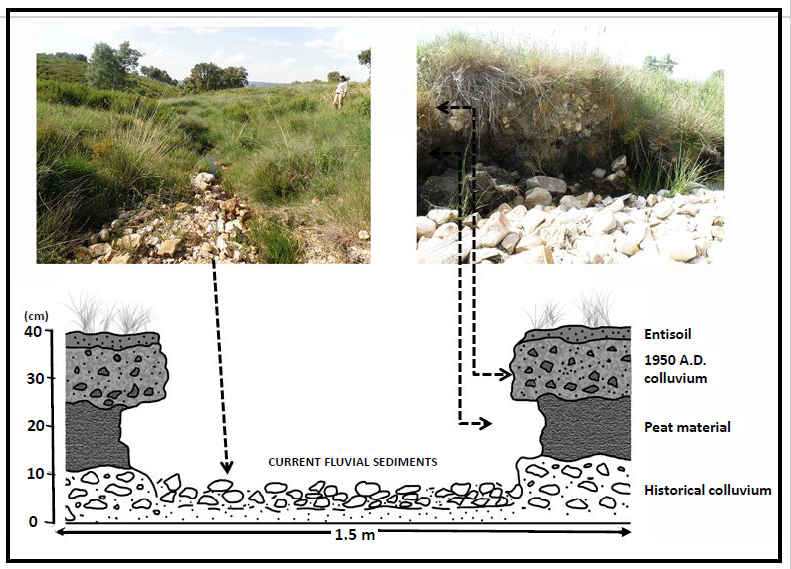This paper constitutes a first advance in the paleoenvironmental study of a small group of peatland ecosystems, of reduced size, located in the interior of the Iberian Peninsula (Puebla de Don Rodrigo, Ciudad Real, Spain). It represents a singular enclave, because these ecosystems are home to the southern-most peatlands in Europe, located at the lowest altitude in Spain, and are unique to the region of Castilla-La Mancha. They form ecosystems similar to the peat bogs of northern Europe, but in a Mediterranean climate. The analysis is followed of sample collection and data collection from documentary, textual, and cartographic sources drawn up since the 16th century up until the present day. The scientific analyses that were performed and the documentation that was consulted point to the hypothesis that these peatlands are the result of a long process of historical modification of the landscape in which anthropogenic activity has played a leading role, triggering a series of processes on the hillslopes that are culminating in the exhumation of the waterlogged areas, thereby establishing a recent genesis of these ecosystems.

